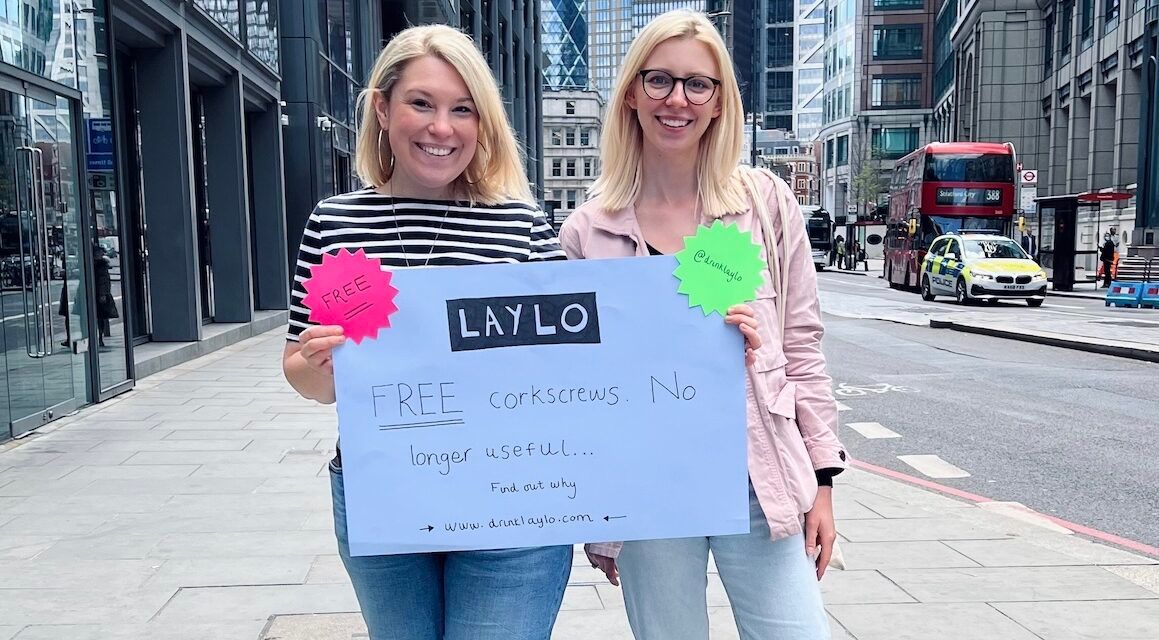Great minds really do think alike when it comes to the story of Laylo and how Laura Riches and Laura Rosenberger joined forces to launch and build the brand in the UK.
What was the thinking about starting the company and why did you want to focus on boxed wine?
We love drinking the odd glass of wine midweek, but not necessarily committing to a bottle. When we discovered that boxed wine stays fresh for six weeks once opened and it’s possible to put decent quality wine in the format, we couldn’t work out why boxed wine wasn’t more popular in the UK.
What was the inspiration to start the business?
Laylo started with a moment of serendipity during the 2020 summer lockdown. We had both independently had the idea to create a luxury boxed wine brand, but it was only when Laura Rosenberger (my co-founder at Laylo) texted me to ask for some advice that we realised the coincidence.
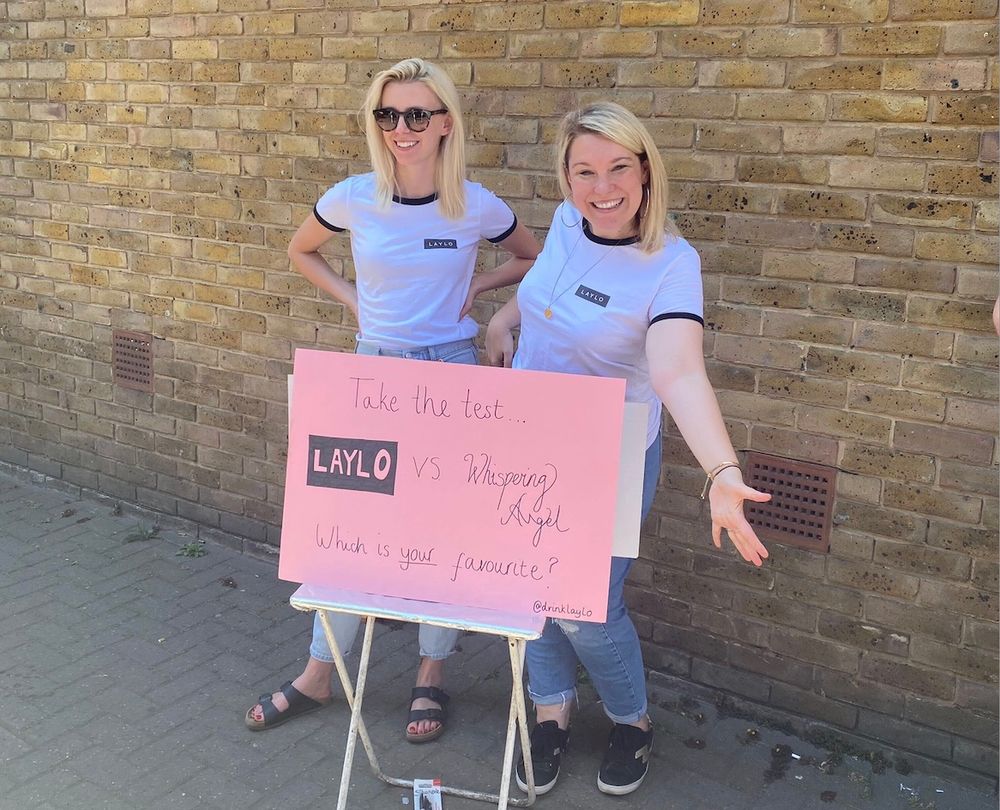
Laylo founders: Left, Laura Rosenberger who looks after wine operations and finance, and right, Laura Riches who heads up marketing and PR.
A week later we compared notes and it turned out we shared the same vision. Top quality wines in beautiful boxes, which could be proudly displayed on your countertop. It was a no-brainer to join forces – and Laylo was born.
Without that coincidence, it probably wouldn’t have happened!
You both worked together at Naked Wines – why did you decide to go it alone?
We were both freelance consultants when we started Laylo. We worked closely with startup founders and started to think – I could do this too! It’s notable that lots of ex-Naked employees have gone on to start companies themselves. Eamon FitzGeraled (former UK managing director) has founded WineSpark in Ireland and Luke Jecks (former group chief executive) started a sports business called SloCoach. The culture at Naked was very entrepreneurial.
Were there specific learnings you took from Naked Wines that you have been able to apply to Laylo?
Naked was data-driven and customer-centric before those became buzz terms. We’ve tried to apply that same ethos at Laylo, by involving our customers as much as possible in the decisions we make.
How have the first three years of the business gone?
It’s a cliché, but it feels like a decade and five minutes at the same time.
Since the first boxes were sold in November 2020 we’ve gone from being a D2C brand fulfilled from the basement of my local wine merchant to a bona fide brand, with thousands of loyal customers and widespread distribution in the on-trade. We probably don’t celebrate that enough, because there’s always so much more we’d love to do.
What have been your big breakthroughs to take the company forward?
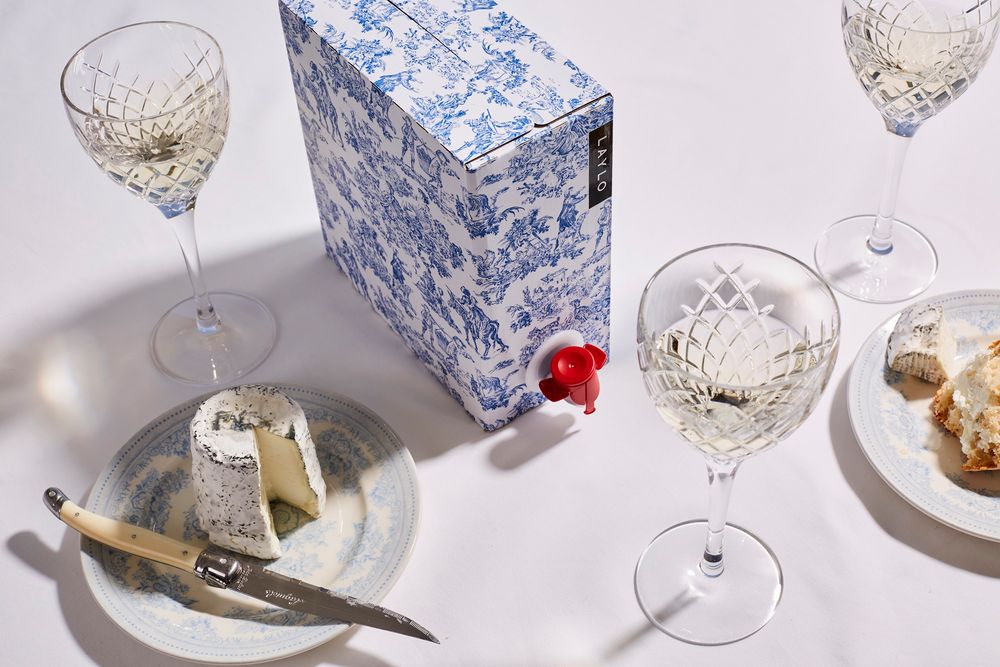
A key part of Laylo’s success has been the look, feel and design of its boxes that match the quality of the wines inside
The biggest breakthrough has been starting to sell into the trade, which came about because we were being approached by restaurants and bars looking for a sustainable switch. Boxed wine generates 90% less carbon than glass bottles, is more space efficient and is perfect for selling by the glass or (Laylo branded!) carafe.
Seeing our Sauvignon Blanc on Channel 4’s Sunday Brunch was also a huge milestone. We’ve intentionally taken a more disruptive and scrappy approach to marketing, rather than spending lots of money. So seeing our product positively reviewed to hundreds of thousands of people was a huge buzz.
What have been the hardest challenges and what are you doing to overcome them?
The hardest challenge has been figuring out how to spend our time. We’re a team of five and there are hundreds of things we could do, but the skill has been figuring out the most impactful.
When we launched Laylo, lots of people told us we should be selling into retail and trade, but we were intentional about building a core of evangelical D2C customers first. Similarly we’re often asked about other formats such as cans and paper bottles, but we’re choosing to focus on one thing and creating the best version we possibly can.
How do you see the boxed wine market and how has it developed?
Boxed wine in the UK remains a small proportion of the market, but it’s growing rapidly. We estimate it’s currently 4% of the total wine market. This means it’s doubled in the last two years.
What’s harder to quantify is the shift in customer perceptions of boxed wine. When we started Laylo, the challenge was to convince customers that boxed wine could taste great. These days it feels like there’s a more mainstream understanding of the benefits and potential quality.
In the next five years we believe boxed wine will become widely adopted as a smarter and more sustainable way to drink wine, at home and in trade. And obviously our ambition is to be at the forefront of that trend.
Is the drive towards living more sustainable lives helping you and the boxed wine market?
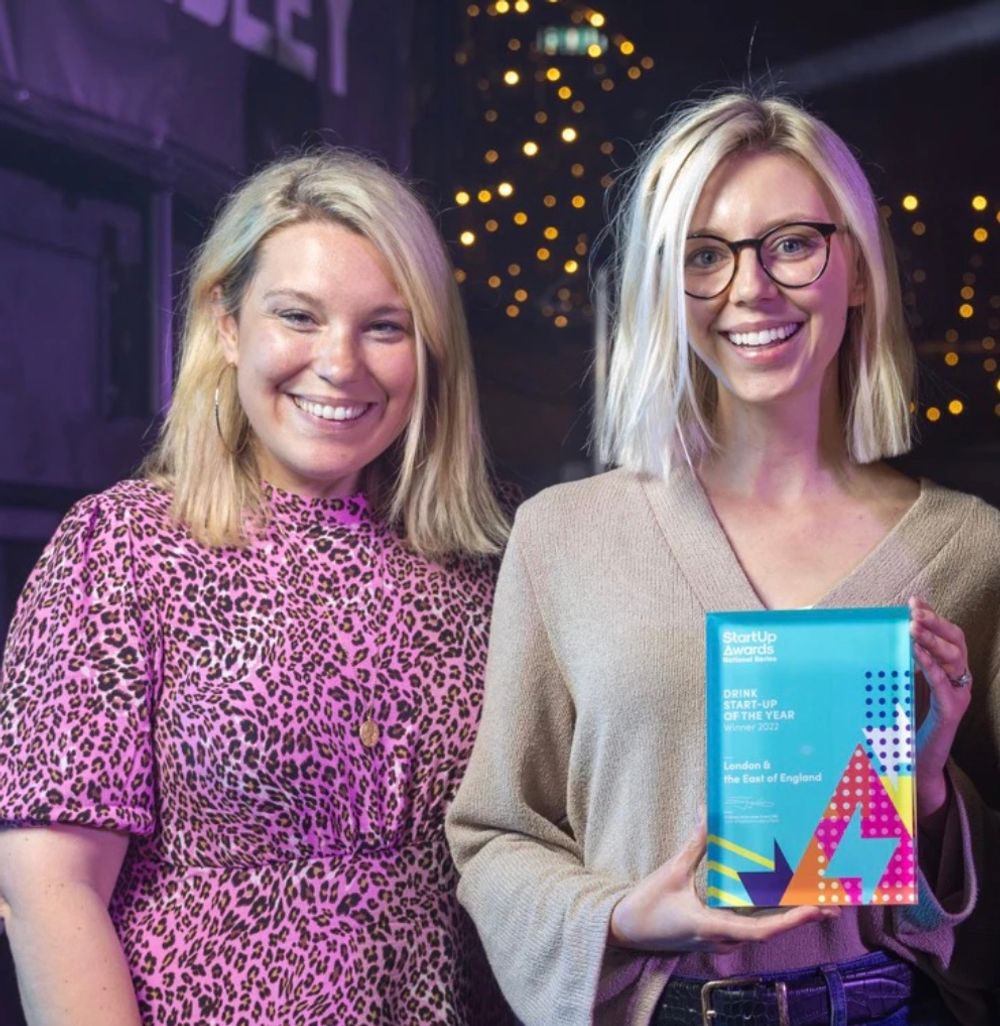
Laylo has received a number of awards along the way including Drinks Start-up of the Year at the StartUp Awards in 2022
Absolutely. When we talk to customers, they often tell us that they feel great making a sustainable swap. But ultimately we’re asking people to part with their disposable cash during a cost of living crisis, so the quality has to be there for boxed wine to be more than just a one off purchase.
How will the new duty reforms impact boxed wine?
Laylo has grown quite a bit this year, which means we’ve managed to negotiate better deals on packaging and logistics, to offset the rising duty. So unlike most wine retailers we didn’t increase the D2C prices on our website on August 1. However, our margin can’t handle any more economic hiccups without us also passing on increased costs to customers.
Obviously we have a huge vested interest in this position, but if the government is serious about sustainability it would make sense to offer tax incentives for more sustainable formats, including bag-in-box.
We currently pay £8.02 per 2.25L box in duty, up from £6.70 before August 1. The shift to boxed wine and other alternative formats already has great momentum, but being able to offer meaningful incentives to consumers would be game-changing.
Given how many of the leaders in this space are UK startups, it would be an amazing way for the government to support small home-grown businesses.
Tell us about your range of wines and how do you source them?
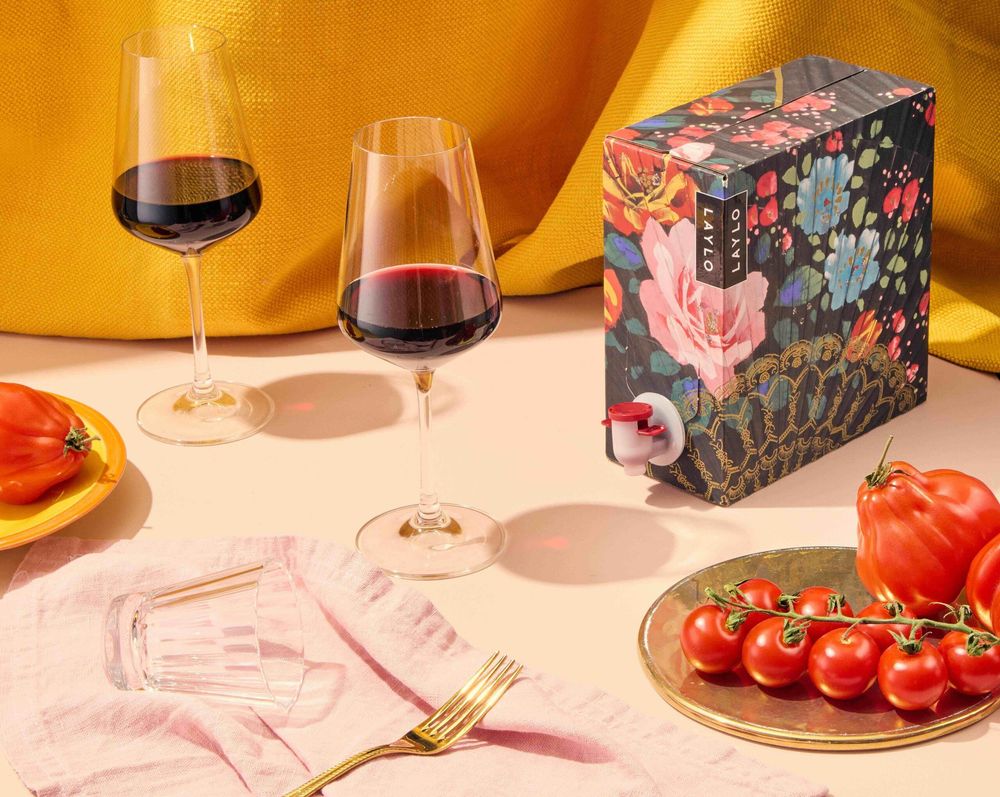
Clem Yates MW helps to source the Laylo range of wines working with smaller producers across Europe
We work with Clem Yates MW to discover delicious wines from smaller producers throughout Europe.
Our range is intentionally small. For both D2C and trade we have chosen a few key styles, which mean there’s something most people will love. For example, our Loire Sauvignon Blanc has been our bestseller every month since it launched in April 2021.
We then supplement the range with opportunistic parcels of interesting stuff. We’ve had limited runs of an Etna Rosso and Gruner Veltliner and have some fun things planned this Christmas too.
The only non-negotiable is that the wine represents great value for customers vs. equivalent wines in glass bottles.
How has your range changed since you started?
We started with one wine, a Tempranillo made by Ruth and Ana de Andres.
At that stage Laylo was a side hustle, which we had funded ourselves. We hoped people would love it, but it was firmly an experiment! Needless to say we sold out of the first batch of 2,000 litres – and the rest is history.
It wasn’t until June 2021 after we’d raised some investment that we had a red, white and rosé.
You place a lot of emphasis on the design of your boxed wines – what is the thinking about what you want to do from a design perspective?
One of the great things about a box is that you have five visible faces to make customers feel something about the wine inside.
Each of our designs aims to tell the story of the wine, region and winemaker. For example our Loire Sauvignon Blanc is wrapped in a traditional local Toile de Jouy, with references to the winemaker Pierre-Jean incorporated into the pattern.
We wanted to create boxes that wine drinkers would proudly display on their countertop or give to friends as a gift.
Who do you work with to develop the designs?
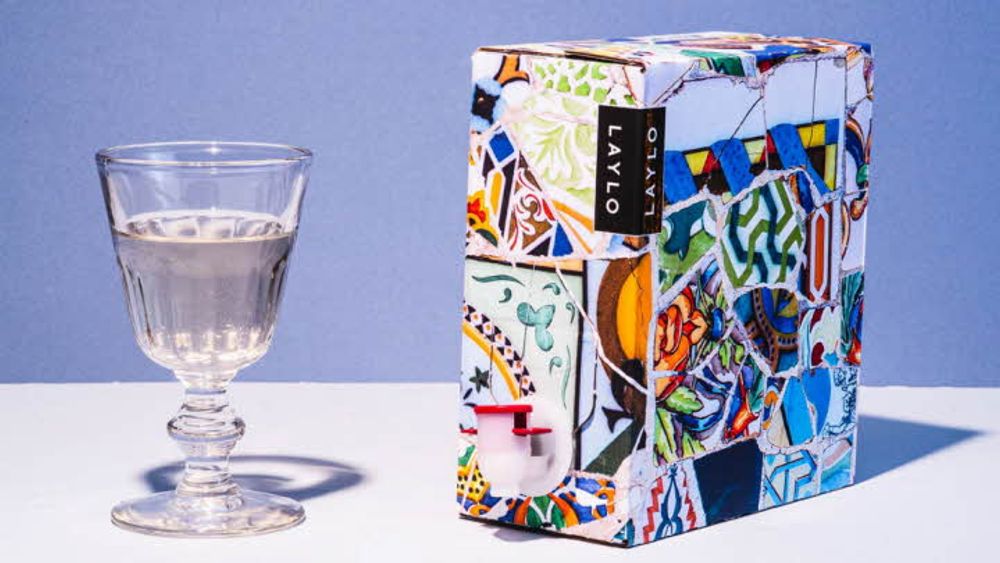
Laylo’s creative design help tell the story of the wine and where it comes from and most of all look great too
We work with Ed Wright at Barlow & Co. He worked with us at Majestic and has been part of Team Laylo since the beginning.
It’s a fairly collaborative process, starting with an in depth call with the winemaker. They usually come armed with technical details about the wine, then are surprised when we ask them about their families, homes and passions outside of winemaking.
Halfway through the most recent call with one of our Italian winemakers, we discovered he has a passion for vintage motorbikes. These are the hidden stories that we love to tell.
How have your designs developed since you started?
We’ve definitely got braver.
The most loved design recently is the Lot #9: Luberon Rosé, which is based on a discarded paint palette in the Provence lavender fields and olive groves. It’s completely different to the others because it’s abstract and almost looks three dimensional.
A recent design brief to Ed included the phrase “boobs and bums in a tasteful setting” so we’re certainly not scared to push the boundaries. Watch this space for this particular design, which is set to launch over Christmas.
What are your key routes to market and main customers?
We are listed at a number of wholesalers, including Enotria & Coe, Hammonds and Propeller. This has enabled us to sell into an amazing set of bar and restaurant chains such as Zanna Group in Manchester.
Prior to the wholesale listings we built a brilliant list of independents who we sell to directly. Seeing our wine in iconic venues like The Culpeper was incredible.
You also sell wine direct – do you have a typical Laylo drinker in terms of age and background?
Most importantly, people who buy Laylo self-identify as wine lovers. Each three bottle box costs around £35 (equivalent to £11.66 per bottle) so our customers are happy to pay a little bit more for quality. They tend to be in their thirties and forties – and enjoy discovering new brands, not just in food and drink but across fashion and interiors too.
Laylo is perfect for enjoying ‘the odd glass’ at home, so we’re really popular with parents who fancy a glass of wine without committing to a bottle. We’re often told it’s a delicious treat at 8pm once the kids are in bed.
You offer a number of gift options – what do you find works particularly well and how much interest is there is boxed wine gifting?
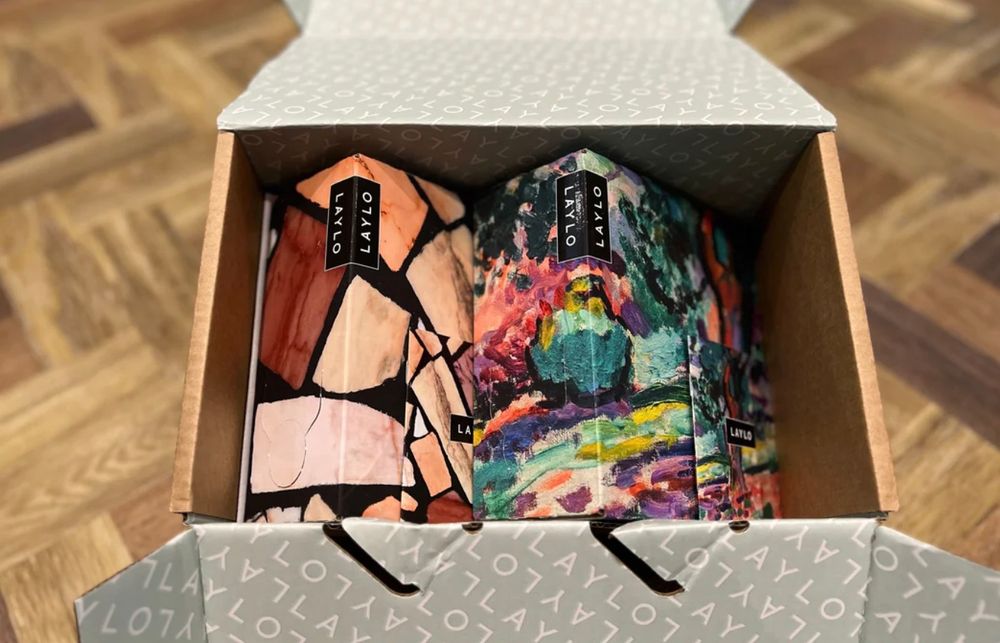
Gifting- including corporate gifting – has become a key part of Laylo’s business
Gifting is a huge part of our business. It’s a great choice for those tricky-to-buy-for friends, when a ‘normal’ bottle of wine might not seem thoughtful enough. We’ve also put a lot of time and care into creating an unboxing experience that’s really premium, including little booklets with tasting notes and the story of the wine.
Our Christmas gifting popup and stall at the Soho Farmhouse Christmas Market have been some of our most successful events.
You have a five star Excellent rating from Trustpilot on your website – how have you achieved that and what do you have to keep on doing to maintain it?
It goes without saying that people have to enjoy the wine. But something that comes up time again in our Trustpilot reviews is the speed of delivery.
Laura [who handles wine operations and finance] worked incredibly hard early on to set up operations and logistics that meant we could compete with the biggest companies. We offer next day delivery on all orders before 6pm, which is free on orders of two or more boxes.
Where next for Laylo and what are your key targets in the next couple of years?
We want Laylo to be to boxed wine what Whispering Angel was to rosé – the aspirational, trailblazing brand which helps build the category.
In the short term, we’re focused on making sure as many people as possible are drinking and enjoying Laylo this Christmas, whether that’s at home or out with friends.
And if we happen to keep having fun along the way, that’ll be the cherry on top.
- If you want to find out more about Laylo then go to its website here.
